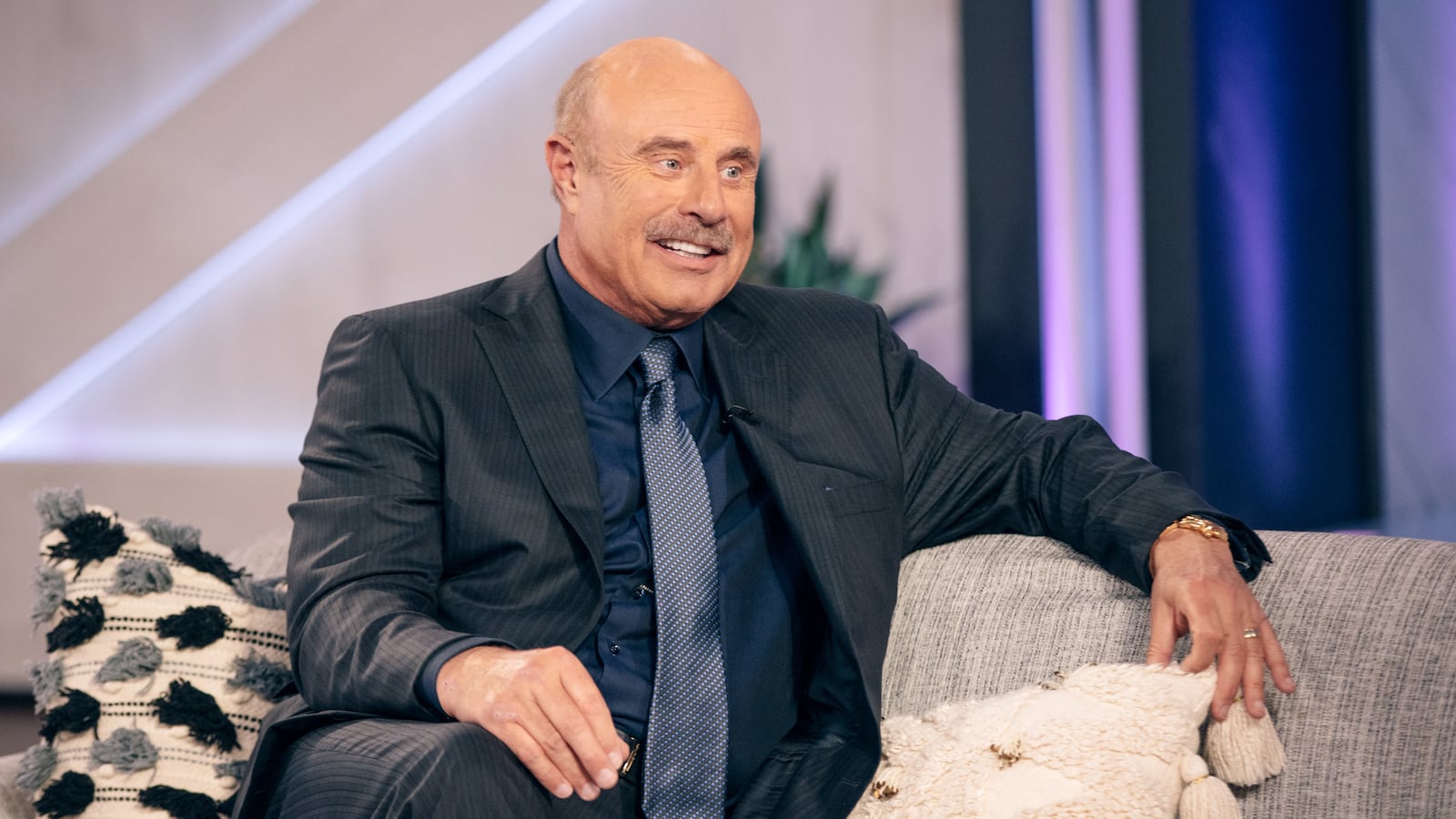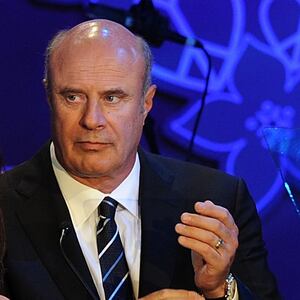After 21 seasons of sensational programming focused on everything from delinquent offspring to rampant substance abuse to extramarital affairs, Dr. Phil, the hit daytime talk show led by Dr. Phil McGraw, will end after its current season per the host’s choice, Variety reported Tuesday.
It’s the end of an era for the authoritative, Southern-accented TV star, who holds a doctorate in clinical psychology but is not a licensed therapist. For years, the show lured droves of audiences (and continues to average 2 million viewers per episode) with McGraw’s pointed interviews with troubled guests, which could be as hilarious as they were harrowing, despite the fact that the show is itself a consistent magnet for lawsuits, scandals, and criticism.
Off-screen storms
One of the host’s early controversies involved Britney Spears during the peak of her mid-aughts mental health struggles; in January 2008, McGraw was permitted to visit her while she was being hospitalized for a mental breakdown. He later made public statements about the visit that alienated Spears’ family and left them chastising McGraw for betraying their trust. In response to criticism that he was trying to insert himself into the story purely for entertainment value, McGraw canceled a planned episode of Dr. Phil about Spears’ situation.
More recently, at the height of the COVID-19 pandemic, McGraw caught flack for questioning the need for social distancing to prevent the spread of the virus.
“The fact of the matter is we have people dying, 45,000 people a year die from automobile accidents, 480,000 from cigarettes, 360,000 a year from swimming pools, but we don’t shut the country down for that,” McGraw had said on Laura Ingraham’s The Ingraham Angle. “But yet we are doing it for this and the fallout is going to last for years because people’s lives are being destroyed.”
Legal battles abound
Those off-screen antics are just the tip of the iceberg, as McGraw is no stranger to lawsuits stemming from his divisive show. In 2021, a woman who alleged that she was sexually assaulted at a ranch in Utah sued McGraw and ViacomCBS for negligence after the host had recommended she be sent there on an episode of Dr. Phil. The show was also sued for defamation by Surinamese brothers Deepak and Satish Kalpoe, two suspects in the case of the disappearance of Natalee Holloway.
In another lawsuit, Shirley Rae Dieu alleged that during a taping session at the Dr. Phil House for an episode that eventually aired in 2007, she had been held against her will and “forced to be in the same room with a completely live naked man while he exposed his entire naked body, genitals and all.”
“All of Shirley Rae Dieu’s claims are without merit,” Dr. Phil’s lawyers responded in a statement. “Once Ms. Dieu expressed her discomfort, and producers ascertained there was nothing they could do to help her, they called a car service to return her to her home.”
Behind-the-scenes manipulation
And then there’s the show itself, which has long faced criticism that it goes too far in pursuit of entertainment by exploiting vulnerable people and taking advantage of their problems to boost ratings.
In 2022, BuzzFeed spoke to a dozen current and former Dr. Phil employees who said they’d experienced a miserable work environment where they were encouraged to inflate onscreen racist stereotypes and, in one instance, ensure a guest was not properly medicated before her appearance so she’d look unstable. McGraw’s personal attorney refuted the claims, dismissing them as clickbait.
A rambling 2016 interview with reclusive actress Shelley Duvall was resoundingly condemned, and Todd Herzog, a recovering alcoholic and former winner of Survivor, alleges that his inebriated appearance on Dr. Phil in 2013 was engineered by producers who he said gave him Xanax and put handles of vodka in his dressing room. A psychologist affiliated with the show denied Herzog’s allegations.
‘A cautionary tale’
According to experts and critics who spoke with The Daily Beast, the end of McGraw’s show is long overdue.
“The legacy of Dr. Phil is a cautionary tale,” addiction activist Ryan Hampton told us on Wednesday. “It wasn’t just his attitude and his approach, which was everything we’re taught not to do. He never really approached a situation with compassion.
“What really irked me was the exploitation of these stories and the exploitation of people who were in a crisis state to peddle sponsors’ products,” Hampton continued. “It was well known that if you want to up your admission rates at your treatment facility in Malibu, or sell your virtual reality treatment program that’s rooted in zero science, then you just need to do a sponsorship with Dr. Phil’s show. From my community, it’s good riddance.”
That sentiment was echoed on Tuesday by Taylor Cole Miller, an assistant professor of media studies at the University of Wisconsin-La Crosse, who tweeted on Tuesday, “The Dr. Phil tapings I went to were manipulative, unethical, and representative of bad television production practices for a show that claims to be intellectually honest and moral.”
Speaking to The Daily Beast, Miller elaborated, “At one taping I attended, we had a Michael Jackson dance-off, people were excited and happy and I even got a Dr. Phil heart-shaped stress ball. That episode was about teen suicide. After it wrapped, they moved us to different spots in the studio to tape a second show, and the dance-off continued. We thought: maybe this one will be a lighter episode. The second episode was about teens who seriously abuse their parents.
“The sudden crash of being slammed with such a heavy topic after being produced to be silly and giddy felt either extremely psychologically manipulative or grossly incompetent,” Miller continued. “My educated guess is that kind of producing is intentional on Dr. Phil, because the quick juxtaposition between those sentiments will elicit a more emotional response.”
Indeed, the consensus among critics is that pulling McGraw and Dr. Phil from the airwaves is a net positive—even if his next move is, scarily, still up in the air.
“I think it’s probably a good thing for the community that he no longer will be broadcasting,” psychiatrist Dr. Jeffrey Sugar, who’s criticized McGraw in the past for his comments on Spears, told The Daily Beast. “Although I shudder to consider what he might do instead.”








